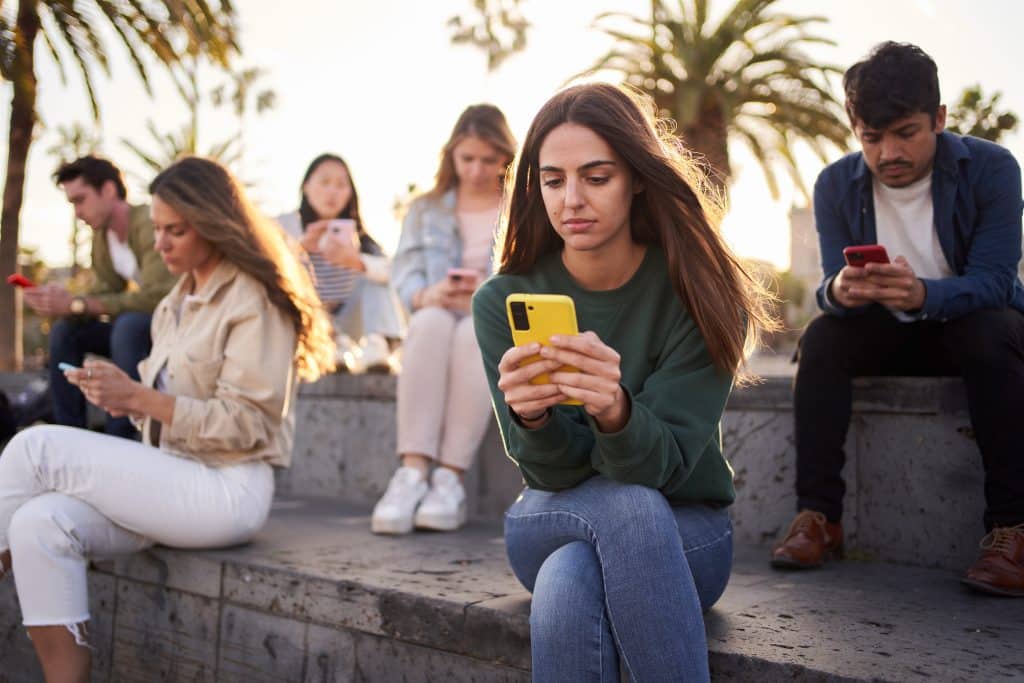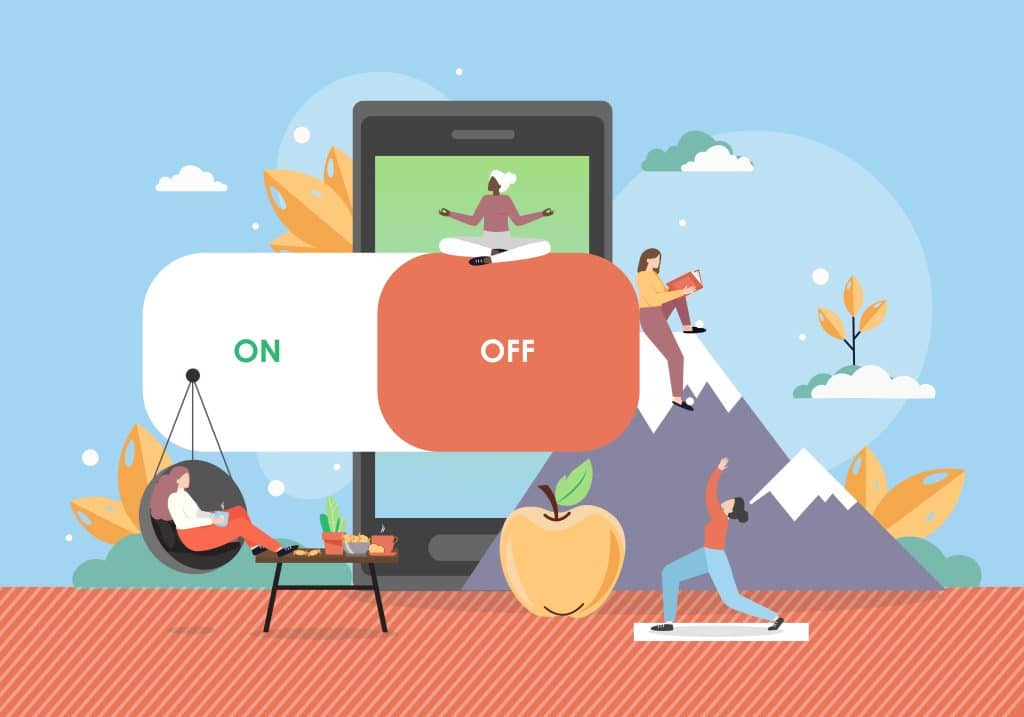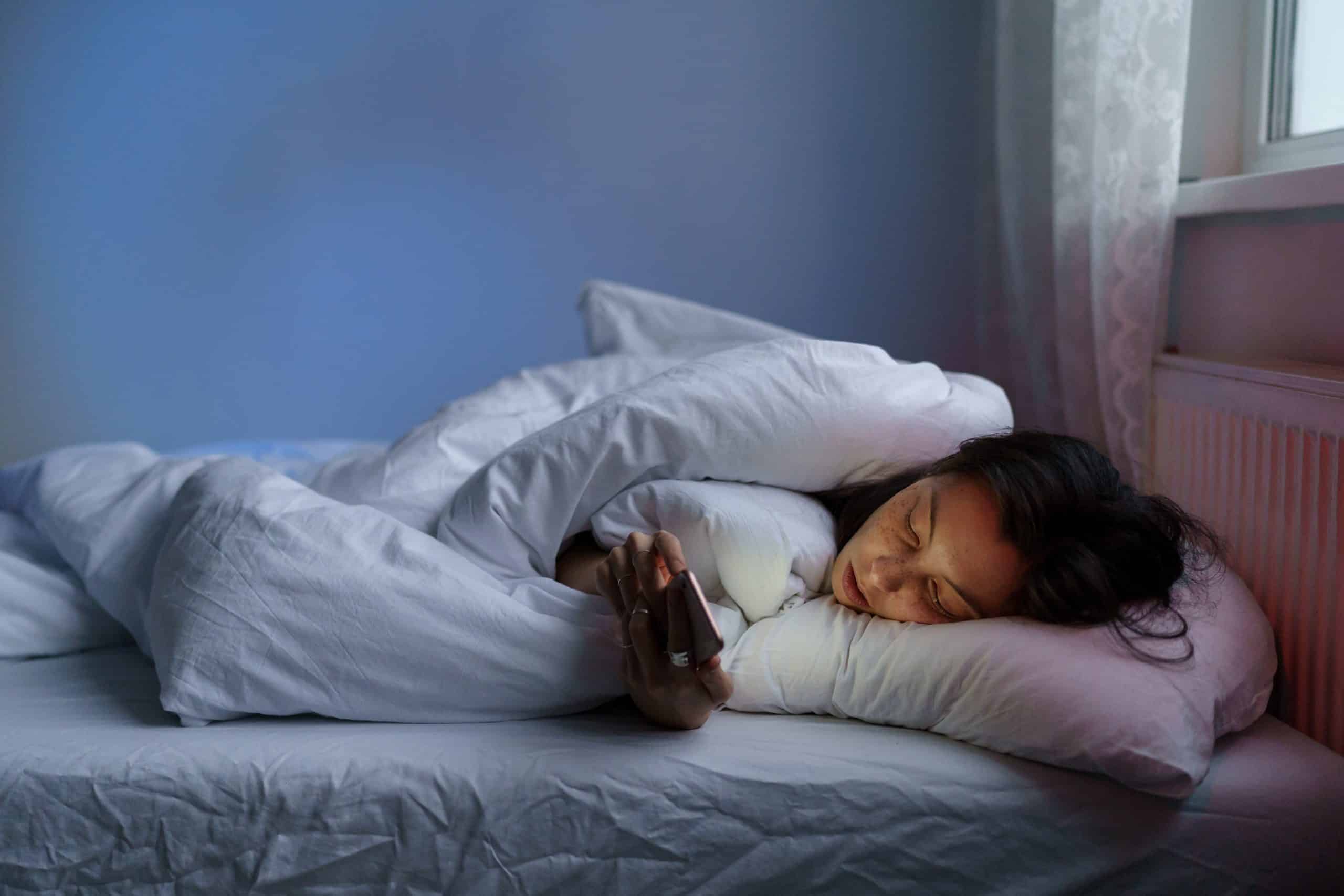Taking A Digital Detox From Time To Time Is Conducive To Good Health
In recent years, experts have been discussing the benefits of taking a digital detox, as the rise of digital technology has drastically altered our daily routines and habits. Smartphones, laptops, tablets and other devices have become an integral part of our lives, allowing us to stay connected 24/7 and access information at our fingertips. While this may seem convenient and beneficial in many ways, it is also important to recognize the negative impacts that excessive use of technology can have on our mental and physical well-being.
Smartphone Addiction
Smartphone addiction is characterized by excessive and compulsive usage of smartphones that interferes with one’s daily activities and relationships. It is often compared to other forms of addiction, such as substance abuse or gambling, due to its similar patterns of behavior and potential negative consequences.
One of the main reasons for smartphone addiction is the instant gratification it provides. With just a few taps on the screen, we can access a wealth of information and entertainment at our fingertips. This constant stimulation and easy access to social media, games, and other apps can lead to a dependence on our devices, making it difficult for us to disconnect or limit our usage.
Moreover, the fear of missing out (FOMO) has also been linked to smartphone addiction. With the rise of social media platforms, we are bombarded with updates and notifications about what others are doing, causing us to constantly check our phones for fear of missing out on something important or exciting.
Another contributing factor to smartphone addiction is the design and features of these devices. Companies use various techniques, such as push notifications and personalized recommendations, to keep users engaged and coming back for more. The constant stream of new information and updates can be overwhelming and difficult to resist.
This constant need to be connected and stay updated with the latest news, social media posts, emails and messages has led to a phenomenon known as “digital overload”. This state of being constantly bombarded with digital information can lead to stress, anxiety, and even depression. It also affects our ability to focus and concentrate, leading to decreased productivity and efficiency.1 2

Consequences Of Smartphone Addiction
The consequences of smartphone addiction can range from mild to severe. It can lead to decreased productivity, lack of focus, and poor sleep quality due to excessive screen time. In extreme cases, it can also cause social isolation and strain relationships as individuals prioritize their phones over real-life interactions.
Smartphone Addiction – Gray Matter Abnormalities
Studies have shown that prolonged use of smartphones can lead to gray matter abnormalities in certain regions of the brain. Gray matter is a major component of the central nervous system and is responsible for processing information and controlling various functions such as memory, emotions, and decision making. Any changes or abnormalities in this area can significantly impact an individual’s cognitive abilities and overall well-being.3
Smartphone Addiction – Anxiety
Smartphones have become a means of escaping from reality and avoiding social interactions. This can be particularly harmful for individuals who already struggle with anxiety and stress, as it reinforces avoidance behaviors and can lead to feelings of isolation.
Additionally, the pressure to constantly stay connected and be available for work or social obligations through smartphones can also contribute to anxiety and stress. As individuals feel the need to always be reachable, they may experience increased levels of pressure.4

Smartphone Addiction – Depression
One of the most concerning effects of smartphone addiction is its link to depression. Multiple studies have shown that excessive smartphone use can lead to feelings of loneliness and low self-esteem which are risk factors for developing depression.
One possible explanation for this connection is the constant comparison trap that comes with social media and online activity. People often compare their lives to the seemingly perfect ones portrayed on social media, leading to feelings of inadequacy and unhappiness. Additionally, the constant notifications and need for validation through likes and comments can contribute to a sense of dependency and low self-worth.5 6
Digital Detox – Improve Focus And Concentration
With the increase in technology use and social media, people have become more distracted than ever before. As a result, our focus and concentration levels have decreased significantly. Many of us struggle to stay concentrated on simple tasks for long periods of time without being tempted to check our phones.7
Digital Detox – Increased Productivity
It’s important to recognize the potential negative effects that constant connectivity can have on our productivity. Many of us are guilty of constantly checking our phones, scrolling through social media, and responding to emails at all hours of the day. This constant stimulation can lead to burnout, decreased focus, and overall lower levels of productivity.8
Digital Detox – Improved Sleep Quality
One of the major benefits of digital detox is improved sleep quality. The blue light emitted from screens disrupts our natural body clock, also known as circadian rhythm, which regulates our sleep-wake cycle. Exposure to this light before bedtime can delay the release of melatonin, the hormone that helps us sleep. This not only makes it difficult to fall asleep but also affects the quality of our sleep.9
By unplugging from technology and reducing exposure to blue light, we give our body a chance to reset its natural rhythm. This allows for better production and release of melatonin, leading to deeper and more restorative sleep. Research has shown that a digital detox before bedtime can lead to improved sleep quality and reduced sleep disturbances.
Better sleep quality also translates into increased productivity during the day. When we are well-rested, we have more energy, focus, and concentration, which allows us to be more productive in our daily tasks. On the other hand, lack of sleep due to excessive screen time can lead to fatigue, irritability, and lack of concentration, impacting our productivity and performance.10
In addition to improving sleep quality and increasing productivity, digital detox also provides other benefits such as reducing stress and anxiety, improving relationships, and enhancing overall well-being. By taking a break from technology, we give ourselves the opportunity to disconnect from the constant stimulation and demands of the digital world. This allows us to relax, recharge, and focus on ourselves, leading to a sense of calm and inner peace.
Making A Digital Detox A Reality
Implementing a digital detox into our daily routine can greatly benefit our physical and mental health. It is important to set boundaries and designate specific times for unplugging from technology. This could include turning off all devices two hours before bedtime or committing to a technology-free day once a week. Even simply turning off notifications is another helpful way to disconnect from technology. Taking small steps towards reducing our screen time can have a big impact on our overall well-being.
A digital detox gives our eyes a much needed rest from the strain of staring at screens. It also allows us to engage in other activities such as exercise, spending time outdoors, or pursuing hobbies that we may not have time for while constantly connected.
By taking a break from technology, we allow our minds to rest and recharge. This allows us to tap into our creativity and come up with new ideas. When we are constantly bombarded with information, our brains don’t have the space to generate new ideas and think outside the box. By taking a digital detox, we give our brains the much-needed break they need to come up with fresh and innovative ideas.

Digital Detox – Set Boundaries, Plan Activities, Turn Off Notifications, Find Alternatives, And Be Mindful
When it comes to taking a digital detox, setting boundaries is crucial. It’s important to define clear guidelines for yourself on where you will use technology. This can include designating certain “tech-free” zones such as the bedroom or at the dinner table.
In addition to setting boundaries, planning activities to fill the time that would have been spent on technology is essential. This can include reading a book, going for a walk, or spending quality time with loved ones. It’s important to find activities that you truly enjoy and will actively engage in.
Lastly, it’s important to practice mindfulness during a digital detox. This means being fully present in the moment and not letting technology distract you from your surroundings. Pay attention to your thoughts and feelings, and be aware of how much time you spend on technology overall.
By following these tips, you can successfully take a digital detox and reap the benefits of disconnecting from technology. Remember, it’s important to regularly take breaks and set boundaries in order to maintain a healthy relationship with technology. Instead of constantly being connected to the digital world, take some time to unplug and focus on yourself and your well-being. You might be surprised at how much more refreshed and rejuvenated you feel after a digital detox.
Taking A Digital Detox From Time To Time Is Conducive To Good Health
Let’s strive for a healthy balance in our relationship with technology and remember that sometimes, less is more. Let’s embrace the simplicity of being disconnected and give ourselves the time and space to truly relax and rejuvenate. In today’s fast-paced world, a digital detox may just be what we need to maintain our mental and physical well-being in the long run. So go ahead and take that tech-free break for your health and well-being. Remember, a digital detox from time to time is not just beneficial, it’s necessary.
Read more about common toxins we take for granted.
References
1 Popescu AM, Balica RȘ, Lazăr E, Bușu VO, Vașcu JE. Smartphone addiction risk, technology-related behaviors and attitudes, and psychological well-being during the COVID-19 pandemic. Front Psychol. 2022 Aug 16;13:997253. doi: 10.3389/fpsyg.2022.997253. PMID: 36051208; PMCID: PMC9424853.
2 Shoukat S. Cell phone addiction and psychological and physiological health in adolescents. EXCLI J. 2019 Feb 4;18:47-50. PMID: 30956638; PMCID: PMC6449671.
3 Lee D, Namkoong K, Lee J, Lee BO, Jung YC. Lateral orbitofrontal gray matter abnormalities in subjects with problematic smartphone use. J Behav Addict. 2019 Sep 1;8(3):404-411. doi: 10.1556/2006.8.2019.50. Epub 2019 Sep 23. PMID: 31545101; PMCID: PMC7044619.
4 Elhai JD, Yang H, Fang J, Bai X, Hall BJ. Depression and anxiety symptoms are related to problematic smartphone use severity in Chinese young adults: Fear of missing out as a mediator. Addict Behav. 2020 Feb;101:105962. doi: 10.1016/j.addbeh.2019.04.020. Epub 2019 Apr 20. PMID: 31030950.
5 El-Sayed Desouky D, Abu-Zaid H. Mobile phone use pattern and addiction in relation to depression and anxiety. East Mediterr Health J. 2020 Jun 24;26(6):692-699. doi: 10.26719/emhj.20.043. PMID: 32621504.
6 Annoni AM, Petrocchi S, Camerini AL, Marciano L. The Relationship between Social Anxiety, Smartphone Use, Dispositional Trust, and Problematic Smartphone Use: A Moderated Mediation Model. Int J Environ Res Public Health. 2021 Mar 2;18(5):2452. doi: 10.3390/ijerph18052452. PMID: 33801510; PMCID: PMC7967585.
7 Duke É, Montag C. Smartphone addiction, daily interruptions and self-reported productivity. Addict Behav Rep. 2017 Jul 19;6:90-95. doi: 10.1016/j.abrep.2017.07.002. PMID: 29450241; PMCID: PMC5800562.
8 Ozcan B, Acimis NM. Sleep Quality in Pamukkale University Students and its relationship with smartphone addiction. Pak J Med Sci. 2021 Jan-Feb;37(1):206-211. doi: 10.12669/pjms.37.1.3130. PMID: 33437278; PMCID: PMC7794119.
9 Kheirinejad S, Visuri A, Ferreira D, Hosio S. “Leave your smartphone out of bed”: quantitative analysis of smartphone use effect on sleep quality. Pers Ubiquitous Comput. 2023;27(2):447-466. doi: 10.1007/s00779-022-01694-w. Epub 2022 Nov 9. PMID: 36405389; PMCID: PMC9643910.
10 Worley SL. The Extraordinary Importance of Sleep: The Detrimental Effects of Inadequate Sleep on Health and Public Safety Drive an Explosion of Sleep Research. P T. 2018 Dec;43(12):758-763. PMID: 30559589; PMCID: PMC6281147.




